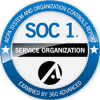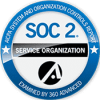Managing population health requires a systematic and comprehensive approach to improving the health outcomes of an entire defined population—characterized by a condition, geographic area, or other distinct characteristic—while addressing the needs of each individual. Successful population health management emphasizes patient-centered care supported by engagement and data-driven decision-making to impact entire communities.
But why does population health matter?
Population health management strategies are centered on a holistic approach to health management that can lead to improved outcomes, reduced healthcare costs, and enhanced patient satisfaction.
By addressing the whole person, including the social, economic, environmental, and behavioral factors that impact health, population health initiatives aim to prevent disease, promote healthy behaviors, and reduce health disparities to improve individual health outcomes and create stronger and more resilient communities. Healthy populations are more productive, have lower healthcare costs, and contribute to overall economic prosperity.
Page Content
Member-Centric Holistic Care Supports Population Health
By focusing on the unique circumstances, preferences, and goals of individuals, person-centered care management promotes better health outcomes and enhances overall population health, all at a lower cost.
Individualized, Community-Based Whole-Person Care
A holistic approach to health that addresses not just physical health but also the behavioral and social factors that can prevent quality care from being effective—such as substance abuse, housing, employment, education, access to resources, and more—can help remove barriers so that each individual receives the care they need, when they need it. Collaboration across different settings and providers in the community reduces fragmentation and disparities while improving continuity of care, positively impacting public health and community well-being.
Empowerment and Engagement
Person-centered care management empowers individuals to actively participate in their own care by involving them in decision-making, goal-setting, and more. This engagement fosters a sense of ownership over health and encourages healthier behaviors, leading to improved health outcomes.
Preventative Care and Wellness
By proactively identifying and addressing risk factors, encouraging preventive screenings, and promoting healthy behaviors, person-centered care management helps prevent the onset of diseases and reduce healthcare costs, leading to better population health outcomes.
Care Management Technology Supports Whole-Population Health
Your care management technology can go a long way toward supporting your population health management goals. Pay attention to these key features:
- Data integration and aggregation—Integrating data from key data sources—such as electronic health records (EHRs), health information exchanges (HIEs), claims, and other relevant sources—provides a more complete picture that enables organizations to analyze and interpret information to gain insight into the health status of individuals and populations.
- Actionable intelligence for data-driven decision-making—With the right data, organizations can identify and stratify individuals within a population based on their health risks and needs so that interventions can be appropriately tailored. This targeted approach enables healthcare providers to operate more efficiently, focusing scarce resources on those who need it most. Make sure your tech offers robust analytics or can integrate with analytics vendors so you can leverage your data to improve identification and decision-making.
- Evidence-based care guidelines—By integrating with evidence-based guidelines, organizations can align interventions with best practices to improve care consistency and quality and further impact population health.
- Comprehensive, whole-person care—Make sure your tools support a holistic approach that integrates physical, behavioral, and psycho-social factors in a comprehensive plan of care supported by collaboration across providers and community services to positively impact public health and community well-being.
- Patient engagement—Technology that engages individuals in managing their own health through education, resources, and other tools empowers them to make informed decisions, adopt healthy behaviors, and actively participate in preventative measures, ultimately improving health outcomes for individuals and populations.
- Quality and Compliance—Ensure your tech aligns with CMS, NCQA, and URAC guidelines to help you improve operational efficiency, reduce healthcare disparities, and improve the quality of care for your populations. By systematically measuring and monitoring key metrics on clinical outcomes and care delivery, you can identify areas for improvement and tailor interventions to address specific population health needs. Plus, these programs can make chronic disease management and patient engagement strategies better and more efficient to further improve population health.
Incedo Enterprise Care Management Improves Population Health
InfoMC’s Incedo Enterprise Care Management platform helps you effectively and efficiently manage individuals and populations to support your population health management goals. Incedo provides robust interoperability via a technology framework that securely interfaces with critical systems, such as EHRs, HIEs, data warehouses, external analytics, business intelligence tools, third-party tools, portals and more, integrating data to create actionable intelligence that powers workflows and secure information-sharing throughout the system.
Incedo supports a whole-person care approach, enabling medical providers to collaborate with behavioral health and community providers to support member health. Plus, Incedo is aligned with CMS, NCQA, and URAC guidelines to ensure you’re meeting your quality metrics.








